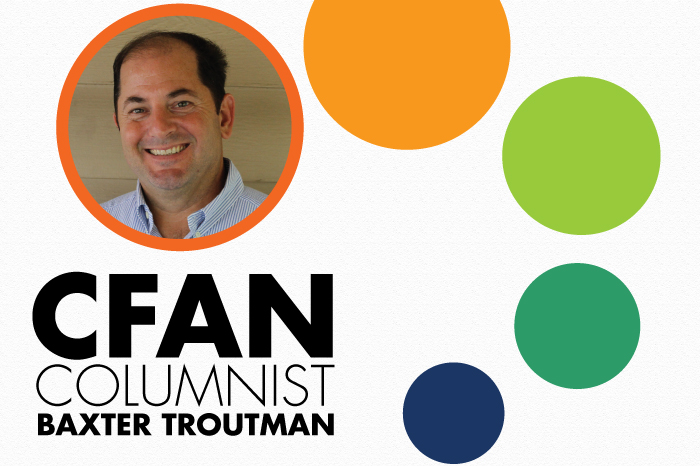At one time, a drive through the Florida countryside could leave you in awe of the vast expanse of citrus groves that blanketed the land. Now, that same ride inspires a different kind of awe — except this new awe leaves a sadness deep in the pit of your stomach.
That feeling gets worse and turns to heartache each time I travel 80-Foot Road in Bartow. Groves ravaged by citrus greening are being pushed back or, worse, set ablaze as landowners watch their dreams go up in smoke.
In recent columns, I’ve talked about the importance of finding an alternative use for grove land. Last month, I delved into the possibility of growing protein until we can once again successfully grow citrus. Would it be as profitable as citrus? Of course not. But we’re an industry of survivors. We can’t give up the ghost.
We have to keep in mind the main objective: To hold tight to our Greenbelt status. To do that, we need to be using our land for bona-fide agriculture.
Some citrus growers have turned their focus to alternative crops as a way to stay in the black. Unfortunately, the history of the soil can complicate an easy and cheap crop swap. Soil that has been treated with herbicides can present a challenge because of the residual chemicals. Some plants simply can’t thrive with those traces still in the soil.
Other citrus growers have branched out into watermelon, although the sandy soil on the Ridge can be problematic for that crop. Ever resourceful, some fellow landowners have tried their hand at growing pine trees. The catch, however, is that it would take about 20 years before you’re able to turn a profit. That would effectively tie up your land and make a transition back to citrus — if and when it comes — considerably more labor-intensive and expensive.
With hay shortages plaguing the nation, maybe that could be another option to help tide over embattled landowners.
It all boils down to individual choice, and I hope the industry chooses to persevere.
This article is sponsored by Labor Solutions, and the opinions expressed herein may not reflect those of Central Florida Ag News or of its advertisers.
BIO: Baxter Troutman is founder and chief executive officer of Labor Solutions, a staffing company with offices in Bartow, Winter Haven, Lake Wales, Arcadia, and Plant City. You also can visit his Dark Hammock Legacy Ranch online at www.DH-LR.com. A cattle rancher and citrus grower who served in the Florida House of Representatives, Troutman understands the challenges and concerns of today’s farmer.

